News
Anti-graft war must be won against all odds, says Senate President
Published
3 years agoon
By
News Editor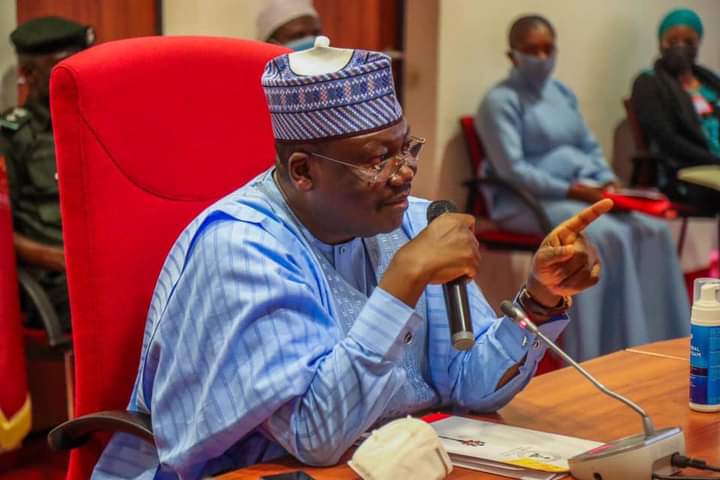
…As Witness Protection bill scales second reading
President of the Senate, Ahmad Lawan, has said that the war against corruption by the President Muhammadu Buhari-led government must be won irrespective of temporary setbacks.
Lawan stated this in his remarks after a bill seeking to establish the Witness Protection and Management Framework scaled second reading during plenary on Tuesday.
According to him, the fight against corruption is one that must be vigorously pursued by government to ensure the eventual elimination of graft, given that same is capable of hindering Nigeria’s development.
He added that the Witness Protection bill, if passed and signed into law, would be an incentive that encourages witnesses to testify in corruption cases since their protection is guaranteed under the law.
Lawan said, “Distinguished colleagues, almost every administration in this country would work against corruption that has bedeviled the development of this country.
“The witness protection bill that we are debating today is a way forward to encourage witnesses to testify against corruption. And by protecting them properly, that will incentivise such witnesses.
“The war against corruption is a must, and it must be won. It is not about the quantum of funds or resources that we have, but how we are able to put to use even our scarce resources.
“So, this is a very important bill, and I’m sure all of us would lend our support.”
Sponsor of the bill for an Act to establish the Witness Protection and Management Framework, Senator Suleiman Abdu Kwari, said the bill was first read on February 23, 2021.
According to the lawmaker, it was also listed among the bills of interest and international significance, contained in the recent Executive Communication from President Muhammadu Buhari, which was read on the floor of the Senate on the 19th of January 2022.
“Empirical evidence show that one of the major causes of the inability to successfully prosecute criminal cases in our courts is the lack of witnesses.
“Many of them face intimidation and threats just as prosecutors most times do not have the funds and management framework to safely bring witnesses to testify in court.
“The passage of this bill into law will fill this gap as well as fulfill some of our Country’s international commitments to various conventions and protocols, like the United Nations Convention Against Corruption (UNCAC) amongst others”, Senator Kwari said.
He further recalled that the Witness Protection and Management Bill and Whistle Blower Bill were initially considered as co-joined in a single bill by the 8th National Assembly and passed in 2017.
He added that following a technical stakeholders roundtable comprising of representatives of relevant criminal justice system operators, it was resolved that both bills be unbundled in order to allow Law Enforcement Agencies (LEAS) currently running witness protection programs continue in that wise.
“This necessitates the separation of the two bills and accordingly paves the way for witness protection programmes across the broad spectrum of Law Enforcement Agencies, thereby discouraging duplicity and multiplicity of agencies”, he said.
Section 1 of the bill provides for the establishment of a legal and institutional framework to protect witnesses and related persons, with responsibilities for carrying out all administrative duties relating to witnesses and related persons.
The bill under the section ensures that the relevant agency takes responsibility for entering into a witness protection agreement, regulate the procedure while harmonizing existing laws and policies on witness protection and management.
The Bill in Section 2 also specifies offences and laws in which the bill apply, and comprise terrorism, money laundering (prevention and prohibition), economic and financial crimes, corrupt practices and other related offences, drugs and narcotics and their trafficking, trafficking in persons, Criminal and Penal Code offences.
It further provides for customs and excise management, any legislation dealing with proceeds of crimes, confiscation and forfeiture of assets, and to all justice sector institutions and authorities, including the courts, law enforcement as well as security agencies, and other relevant regulatory institutions towards the protection of witnesses in the course of the investigation, detection and prosecution of offences.
Part 2 sets standard for establishing and managing the witness program, while Section 3 mandates all public institutions having responsibility under their laws of investigating and/or prosecuting offences under any law, to establish a witness protection and management program.
The section further provides for rights, duties, privileges and obligations of other bodies such as courts, lawyers, parents/guardian in relation to witness protection and management.
In addition, Part 3 provides for protections such as allowing a witness to establish a new identity or restore a former witness’s original identity by an application from a relevant agency made to the Court, for a new entry in the birth, marriage or death registry and issuance of a certificate as the case may be.
Part 4 mandates relevant agencies, to designate a Witness Protection office at each of their branch offices to enable the adoption and management of the Witness Protection Program.
On the other hand, Part 5 of the bill provide for the establishment of a Witness Protection Fund to be managed and controlled by relevant agencies.
According to the bill, such funds include moneys appropriated by the National Assembly for payment into the Protection Fund, which shall amount to at least fifty per cent of the total estimated expenditure of the Protection Fund, moneys approved by the President for Witness Protection Programs, moneys accruing to the Protection Fund from any fund or account established by an Act for the lodgment of proceeds of confiscation and forfeited assets.
Other sources include a percentage of the total amount recovered by the Government as direct result of information provided by a protected person, subventions, grants, aid and donations from Federal or State Government, etc.
Part 6 criminalizes certain acts relating to false or misleading and unlawful disclosures, false representation and unauthorized access to a witness.
Part 7 under Miscellaneous provides for legal proceedings such as 30 days pre-action notice, non-compellability of witness, restriction on execution against property of the relevant agency, indemnity of officers of the relevant agency including powers of the Attorney General of the Federation to make regulations in respect of the bill.
The bill after consideration was referred by the Senate President, Ahmad Lawan, to the Committees on Judiciary, Human Rights and Legal Matters; and Anti-Corruption and Financial Crimes.
The Joint Committee is expected to report back in four weeks.
Meanwhile, a bill seeking to establish the Federal Polytechnic Shagamu also scaled second reading in the Senate.
The bill sponsored by Senator Olalekan Mustapha (Ogun East) was referred by the Senate President after consideration to the Committee on Tertiary Institutions and TETFUND for further inputs.
The Committee was also given four weeks to report back to the chamber in plenary.
You may like
News
Economic Sabotage: Senate Invites NNPC, CBN, NIMASA, Dangote, Others for Questioning
Published
1 day agoon
July 25, 2024By
News Editor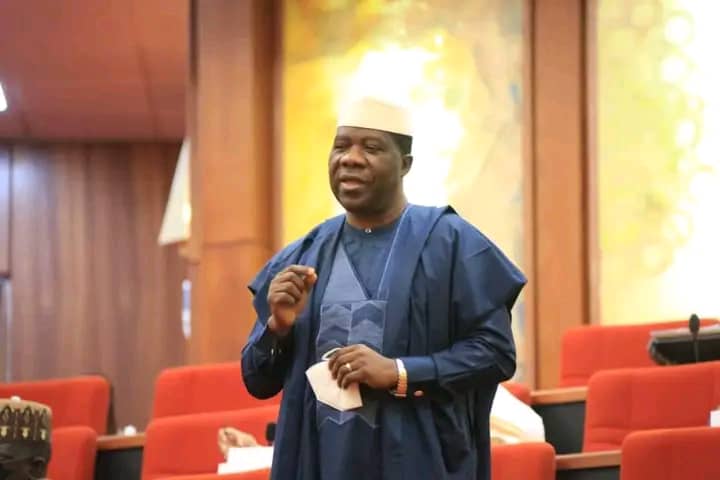
*Investigates Billions Spent On Maintenance Of Nation’s Refineries
*Beams Searchlight On NMDPRA Over Payment To Transporters
*Reveals Plan To Visit 22 Depots, Refineries Nationwide
The Senate has revealed its plan to invite the Central Bank of Nigeria, Nigeria Port Authority, Nigerian National Petroleum Company Limited, Dangote Group and Hon. Minister of State for Petroleum, Heineken Lokpobiri, among others, for questioning over alleged economic sabotage in the country’s petroleum industry.
The upper chamber, further, disclosed that it would investigate billions of dollars that had been spent on turnaround maintenance of the state-owned refineries in the last decade with a view to addressing deep-rooted challenges facing the industry.
The Leader of the Senate and Chairman, Senate Ad-hoc Committee on Alleged Economic Sabotage in the Nigerian Petroleum Industry reeled out the plans at a news conference he addressed yesterday alongside other members of the ad-hoc committee at the Public Accounts Hearing Room 4, National Assembly Complex, Abuja yesterday.
The news conference was organised to educate the public on the mandates, workings, and of course the modalities adopted by the ad-hoc committee, which the Senate constituted on July 3 to investigate allegations of economic sabotage in the country’s petroleum industry.
After its inauguration last Monday, President of the Senate, Senator Godswill Akpabio charged the 15-man ad-hoc committee to conduct a comprehensive investigation into the allegations within three weeks.
Speaking at the conference on Thursday, Bamidele pledged to carry out holistic investigation into the allegations of economic sabotage in Nigeria’s petroleum industry.
The chairman of the ad-hoc committee also assured Nigerians that the ad-hoc committee would carry out thorough investigation into diverse reasons the state-owned refineries have not been operational for years despite budget earmarked for turnaround maintenance.
Specifically, Bamidele noted that the contractors handling the turnaround Maintenance for the refineries would be invited to let the committee on the situation of things.
Bamidele added that the investigation would not be an armchair investigation, pointing out that members of the ad-hoc committee had already set machinery in motion to visit Lagos, Port Harcourt and Warri to have engage key actors in the petroleum industry.
He said: “It is pertinent to note that in the course of interactions with the identified stakeholders, the ad-hoc committee will visit any of their facilities that it deems necessary, especially the state-owned refineries, to ascertain their status, considering the funds already invested in the various turn around maintenances year without any meaningful result.
“The ad-hoc committee is particularly interested in understanding why local refineries are not working despite the substantial amounts of money spent annually on their maintenance and operations. We will closely examine what the Nigerian National Petroleum Corporation Limited has been doing to address this persistent problem.”
He further revealed that the ad-hoc committee had identified some critical stakeholders to interact with in the course of discharging this noble assignment
The stakeholders, according to him, Federal Ministry of Finance, Federal Ministry of Trade and Investment, Nigerian Midstream and Downstream Petroleum Regulatory Authority, Nigerian Upstream Petroleum Regulatory Commission, Standards Organisation of Nigeria, Nigerian Maritime Administration and Safety Agency, Nigeria Customs Service, Nigerian Navy, Obat Oil and Petroleum Limited, Matrix Energy Depot
Independent Petroleum Marketers Association of Nigeria,
International Oil Companies (IOCs), Depot and Petroleum Products Marketers Association of Nigeria, Major Oil Marketers Association of Nigeria,
Capital Oil and Modular Refineries.
Bamidele added that the ad-hoc committee “will meet with stakeholders in their various zones to gather localised insights and feedback. To ensure broad participation and transparency, the ad-hoc committee will create a platform for the general public and stakeholders to submit memoranda before the public hearings.”
He categorically stated that part of mandate of the committee meant “to uncover parties involved in the importation of adulterated fuel and diesel into the country.
“Our investigation seeks to identify and hold accountable all parties involved in the importation and distribution of the adulterated petroleum products. This includes suppliers, importers, regulatory bodies, and any other entities that may have contributed to this serious lapse in quality control.
“We will conduct a thorough review of current regulatory frameworks and procedures to identify deficiencies and recommend necessary reforms to prevent such occurrences in the future. The Committee is committed to ensuring the highest standards of fuel quality for the Nigerian market.”
Bamidele noted that the ad-hoc committee would beam legislative searchlight on the activities of the Nigerian Midstream and Downstream Petroleum Regulatory Authority including payments made to transporters in the last 10 years.
He noted that the ad-hoc committee would enquire from the NNPCL the state and status of the 22 depots built by the defunct NNPC to eliminate road distribution of petroleum products.
He, therefore, appealed to various stakeholders “to cooperate with the committee so that there can be lasting solution to problems in the oil sector. Our mandate is of strategic national interests.
“Each member of the committee is carefully selected based on his/her records of sterling performance. We are all men of integrity who will never pursue selfish interests at the expense of the national interests.
“The Senate did not constitute this committee to intimidate and witch-hunt any party. Rather, the committee was constituted for the purpose of ensuring social and economic justice in the light of grim realities we are facing as a federation.
“We are also taking this task seriously with a view to addressing fundamental issues that pose grave threats to our economic prosperity, fiscal stability and public health as a federation.
“In line with our mandate, we will definitely unravel the roots of economic sabotage in Nigeria’s petroleum industry and make necessary recommendations that will entrench global best practices in the industry and open it up for more investments, especially in the midstream and downstream sectors.
“We are utterly committed to this mandate. We shall also carry out this national assignment without fear or favour. We shall be fair and just to all parties with a view to promoting and protecting the strategic national interests of our fatherland.”
Other members of the ad-hoc committee, who attended the news conference, include Senator Adams Oshiomhole (Edo North), Senator Abdul Ningi (Bauchi Central), Senator Osita Izunazo (Imo West), Senator Ifeanyi Uba (Anambra South), Senator Diket Plang (Plateau Central), Senator Tahir Monguno (Borno North) and Senator Abdullah Yahaha (Kebbi North),
News
Hunger Protest: Information Minister Pleads For Time, Says FG Engaging Stakeholders
Published
2 days agoon
July 25, 2024By
News Editor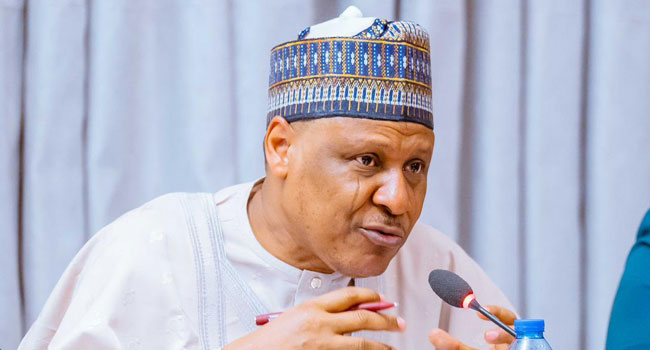
Ahead of the planned nationwide protest in August, the Minister for Information and National Orientation, Mohammed Idris, has appealed to Nigerians to be patient with the Federal Government.
The minister made the plea on Wednesday after a meeting with the Secretary to the Government of the Federation, Senator George Akume.
Briefing journalists after the meeting, Mohammed said the Federal Government was engaging with all stakeholders on the matter.
“You see, the government of President Bola Ahmed Tinubu believes in everyone’s freedom within the laws to do what he thinks is right for him. Therefore, the President is not an opponent of protest of any kind but the President is an opponent of violence and anything that will negatively hamper the wellbeing of Nigerians,” the minister was quoted as saying in a statement by his spokesperson, Rabiu Ibrahim.
“He believes and he has always been saying that within the tenets of democracy, you have every right to do whatever you want to do provided that right does not infringe on another person’s right.
“Why everybody is very cautious and very weary of this national protest is because we have seen what has happened around the world. We know that it’s almost impossible to hold this protest and then have peace at the end of the day. We cannot do that because some people are waiting to take the laws into their own hands.”
He said while Nigerians have the constitutionally guaranteed right to protest, the government was aware some people were planning to hijack the demonstration to cause trouble.
According to the minister, the President Bola Tinubu administration is equally committed to ensuring that these activities do not disrupt public order or violate the rights of others.
He argued that the President is fully aware of the genuine concerns and complaints expressed by Nigerians across the nation and he is actively working to implement effective policies aimed at alleviating the challenges faced by the citizenry and bringing relief to all Nigerians.
Shelve Protest
On his part, President Bola Tinubu urged Nigerians to shelve a planned ‘EndBadGovernance’ protest slated for next month.
Tinubu urged the protest organisers to shelve the plan and await his response to their complaints.
The president’s plea was contained in a message by the Information Minister who briefed journalists at the Presidential Villa on Tuesday.
“The issue of the planned protest, Mr President does not see any need for that. He’s asked them to shelve that plan. He’s asked them to await the government’s response to all their pleas,” the minister said.
‘Engage Them’
For the Human rights lawyer, Femi Falana, the Federal Government should identify the leaders of the planned protest and dialogue with them instead of threats.
“So, this time around the government should try to identify the leaders of the movement and then engage them, and then the questions be raised. There are demands that are being made, and the government should address these demands,” he said on Channels Television’s Politics Today.
“Between now and the first of August is still a long way and I understand the government is going to address the nation. It is also important for governors to really come out and let the people know what they are doing to address hardship in the country which nobody is denying.”
Angry youths have decided to embark on a nationwide protest over the hardship, poverty, and high cost of living among other economic indices.
News
Tinubu Signs Bill Creating North-West, South-East Development Commissions.
Published
2 days agoon
July 25, 2024By
News Editor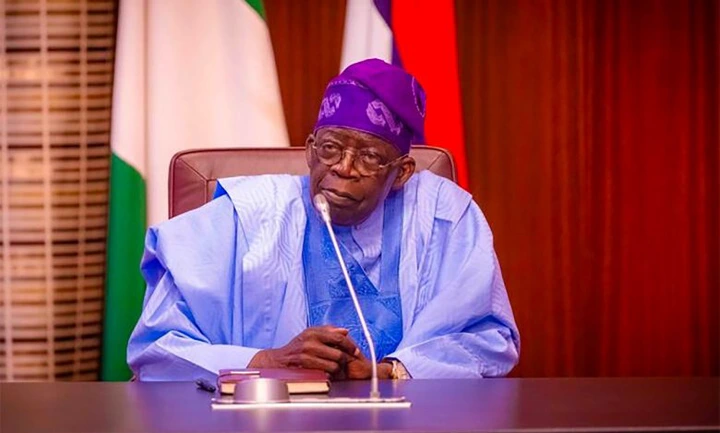
President Bola Tinubu has assented to the North-West Development Commission (Establishment) Bill, 2024, and the South-East Development Commission (Establishment) Bill, 2023.
The President signed the bills into laws to accelerate development across geo-political zones in the country, said presidential spokesman Ajuri Ngelale.
The two bills were earlier passed by the National Assembly.
“The North-West Development Commission is set up to facilitate the reconstruction of roads, houses, and business premises destroyed by multidimensional crisis, as well as tackle poverty, literacy level, ecological problems, and any other related environmental or development challenges in North-West states,” Ngelale said in a statement.
“In addition, the South-East Development Commission is established to ensure the reconstruction and rehabilitation of roads, houses, and other infrastructural damages suffered by the zone, as well as tackle ecological problems, and other related environmental or developmental challenges in South-East states.
“President Tinubu believes in building the nation on the fulcrum of fairness, equity, and unity; hence, he is committed to ensuring equitable development, inclusive governance, and the provision of qualitative services to all Nigerians — no matter where they reside — while knitting even more tightly together the national fabric.”
Latest News
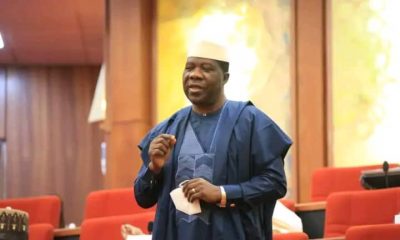

Economic Sabotage: Senate Invites NNPC, CBN, NIMASA, Dangote, Others for Questioning
Share*Investigates Billions Spent On Maintenance Of Nation’s Refineries *Beams Searchlight On NMDPRA Over Payment To Transporters *Reveals Plan To Visit...
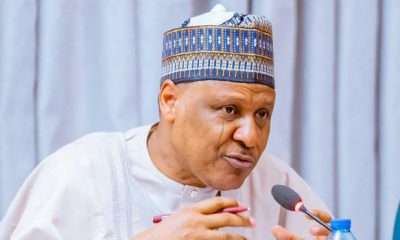

Hunger Protest: Information Minister Pleads For Time, Says FG Engaging Stakeholders
ShareAhead of the planned nationwide protest in August, the Minister for Information and National Orientation, Mohammed Idris, has appealed to...
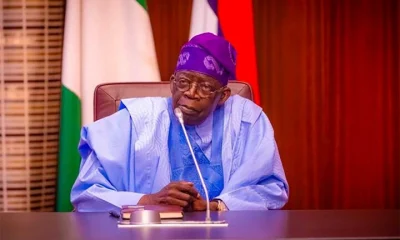

Tinubu Signs Bill Creating North-West, South-East Development Commissions.
SharePresident Bola Tinubu has assented to the North-West Development Commission (Establishment) Bill, 2024, and the South-East Development Commission (Establishment) Bill,...


Tinubu Orders Payment Of SSANU, NASU’s Withheld Salaries
Share President Bola Tinubu has directed the Ministers of Finance, Wale Edun, and Education, Prof Tahir Mamman to explore ways...
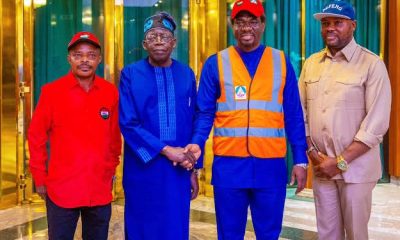

Minimum wage: Manufacturers Present Demands To Aid Compliance
ShareThe Manufacturers Association of Nigeria (MAN) has commended President Bola Tinubu for achieving the breakthrough on the long-awaited minimum wage...
